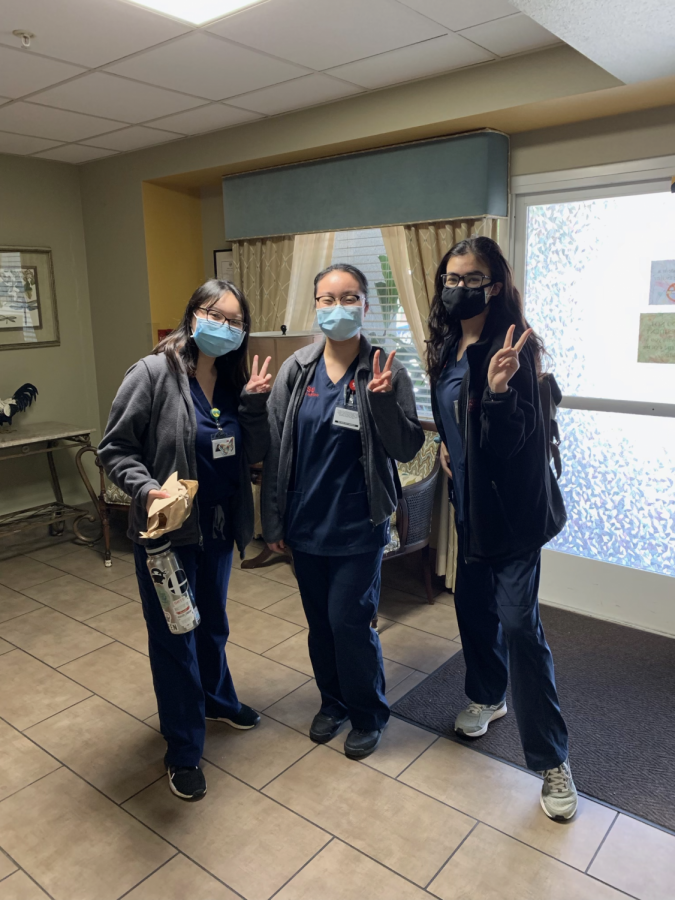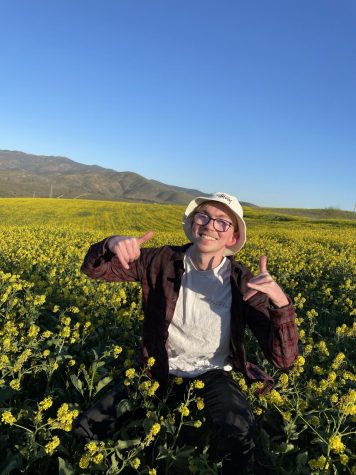Currently, there are over 25 vaccination sites throughout San Diego County and with more locations opening soon, the county is looking for qualified volunteers to assist the vaccination effort. Hearing this call-to-action, San Diego State’s nursing students have volunteered in droves to vaccinate their fellow San Diegans.
Through nonprofit health care organizations like SHARP HealthCare, Scripps Medical, and Champions For Health, students have been given the chance to sign up for a variety of shifts at vaccination clinics throughout the county. After making their arrangements online, students show up to their scheduled clinic and work directly with patients, guiding them through the entire process.
This partnership between SDSU and the county started a few months ago when the county began preparing its plans and materials. Before joining the county’s vaccination plan, students at various levels in their nursing education needed to be trained specifically for the type of vaccine being administered.
Nursing junior Gillian Werolin said students were initially contacted by faculty and sent online modules to complete through the county website attached with a requirement for in-person training. When their “thorough” preparation was completed, students received a list of potential locations to sign up for.
So far, Werolin has volunteered exclusively through Champions For Health, a foundation focusing on areas suffering from health inequities compared to other sections of the county. This underserved demographic includes migrant workers and residents of assisted living facilities, two subsets Werolin particularly takes pride in helping. Overall, she says her participation has been incredibly worthwhile.
“It’s been a really great learning experience and a great opportunity to help the community and hopefully increase the rate of vaccinations,” Werolin said.
Also, Werolin is ecstatic with the way so many nursing students responded to the department and the county’s request for volunteers. She remembers seeing tons of enthusiastic responses from her classmates when the news first came out.
“It was just very positive to see our nursing students actually do care and want to go a step beyond doing the bare minimum and taking their own personal time to help vaccinate,” Werolin said.
SDSU Nursing Director Philip A. Greiner said his department has a long-standing relationship with the county’s health department as nursing students routinely fulfill some of their coursework throughout their facilities. To combat the pandemic, the county saw the school’s nursing students as a “resource” available to them for the vaccine rollout.
Students first put their training to use by administering their classmates with the Moderna vaccine. As a result, Greiner says almost 300 of SDSU’s nursing students are now fully vaccinated against COVID-19.
After getting vaccinated, students went out with their clinical faculty as part of their medical-surgical nursing course or community health nursing course. Once completed, students became free to volunteer on any county-approved site where volunteers are needed.
In both the training and the vaccination process, Greiner says student feedback has been imperative.
“We’re talking to our students because we want to make sure they’re having a good experience throughout all of this and not finding the experience to be problematic,” Greiner said. “So far students are loving this and they’re loving it because it gives them an opportunity to practice their nursing skills.”
On top of that, Greiner notes how these opportunities give students a great chance to practice their people skills, especially figuring out how to work with hesitant patients and provide them with the education they need.
Besides being contacted by the county, the Black Nurses Association reached out to SDSU and asked for help vaccinating hard-to-reach areas in San Diego. Greiner says a number of faculty and students have volunteered on their own time to assist the BNA’s efforts, something which he thinks embodies the meaning of nursing.
“My background is community and public health nursing, so to me this is what nursing should be all about, being out there in the community, being community-facing, not stuck in the hospital, and really working to improve the health of the people we work with,” Greiner said.
Nursing junior Tommi Bowers had previous experience giving out vaccinations when she worked in pop-up flu shot clinics around campus. Like Werolin, she currently volunteers for Champions for Health and has visited senior centers and hospital sites mainly serving local African-American and Hispanic populations. Bowers believes this specific experience has been very enriching.
“Getting to help underserved communities and get them the vaccines they otherwise wouldn’t have had access to is really heartwarming,” Bowers said.
In the communities she’s worked with, Bowers says there’s a lot of compounded stigma about the covid vaccine. This includes people not being aware they’ll have to get multiple shots for the Moderna vaccine and some older patients assuming they’re likely to die after being vaccinated.
“There are patients asking ‘how many people have died from getting the vaccine?’ That’s the big question people are scared of, either that they’re going to die or the government is going to hurt them in some type of way,” Bowers said.
Werolin has encountered similar troubles while tackling misinformation among her patients. Acknowledging the extensive spread of fake news throughout the pandemic, she stresses the importance of people doing conclusive research.
“There’s a lot of misinformation going around so I guess I understand why people might be scared to get a certain vaccine but I think ultimately it comes down to making sure the sources you’re reading up on are credible,” Werolin said.
Bowers ultimately believes making people feel more comfortable is a crucial part of this collective effort. This means especially educating the people who assume hundreds have died from the vaccine and those who don’t give nursing students the same respect as regular nurses.
“Vaccines are one of the first skills we learn as nursing students … but for patients, it’s really scary to get a vaccine, and just making trust with someone is definitely a challenge for nursing students,” Bowers said.
Judging by their rapid response to the county’s shortage of medical volunteers, it looks like SDSU’s nursing students are more than up for this challenge.









